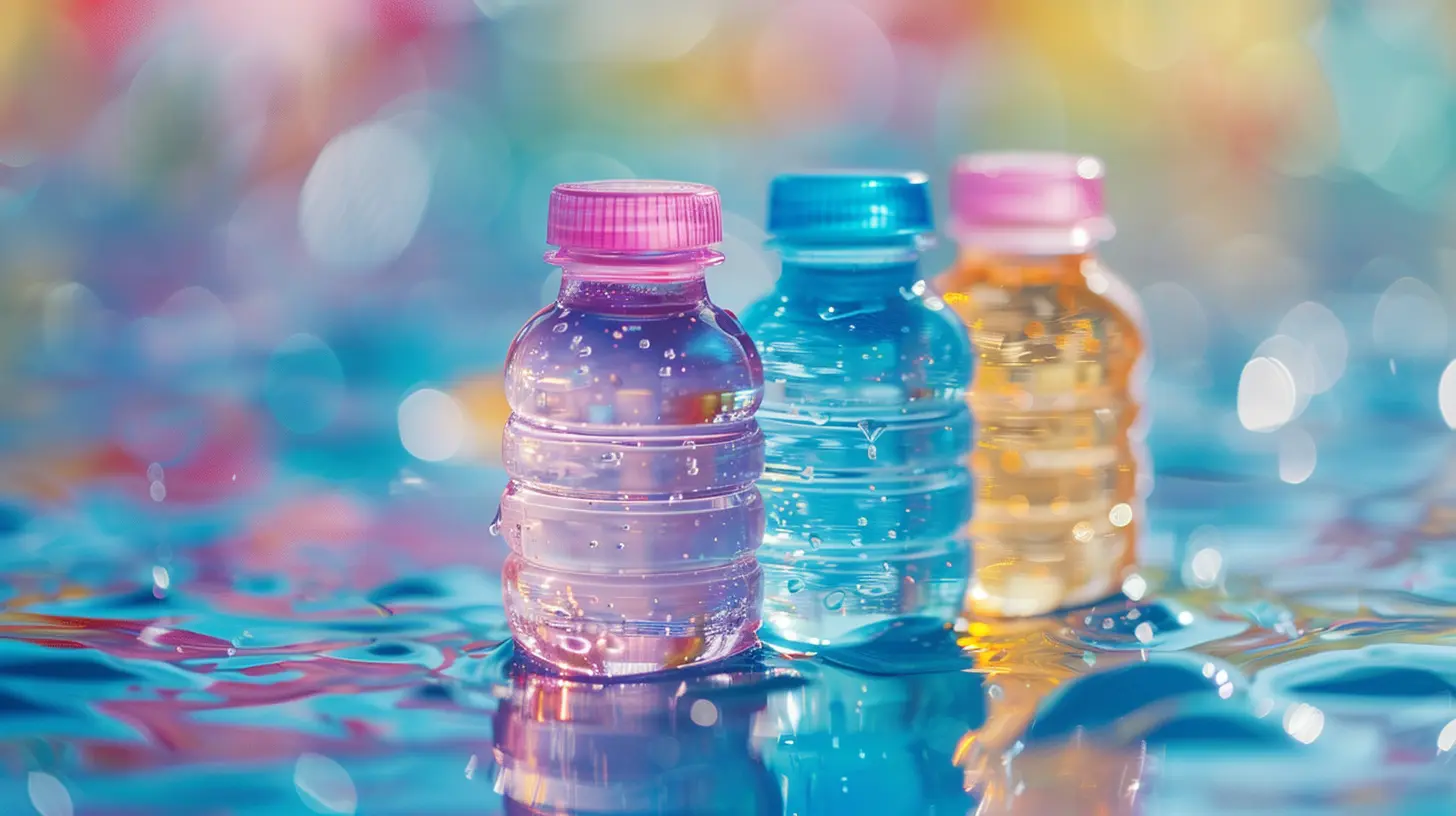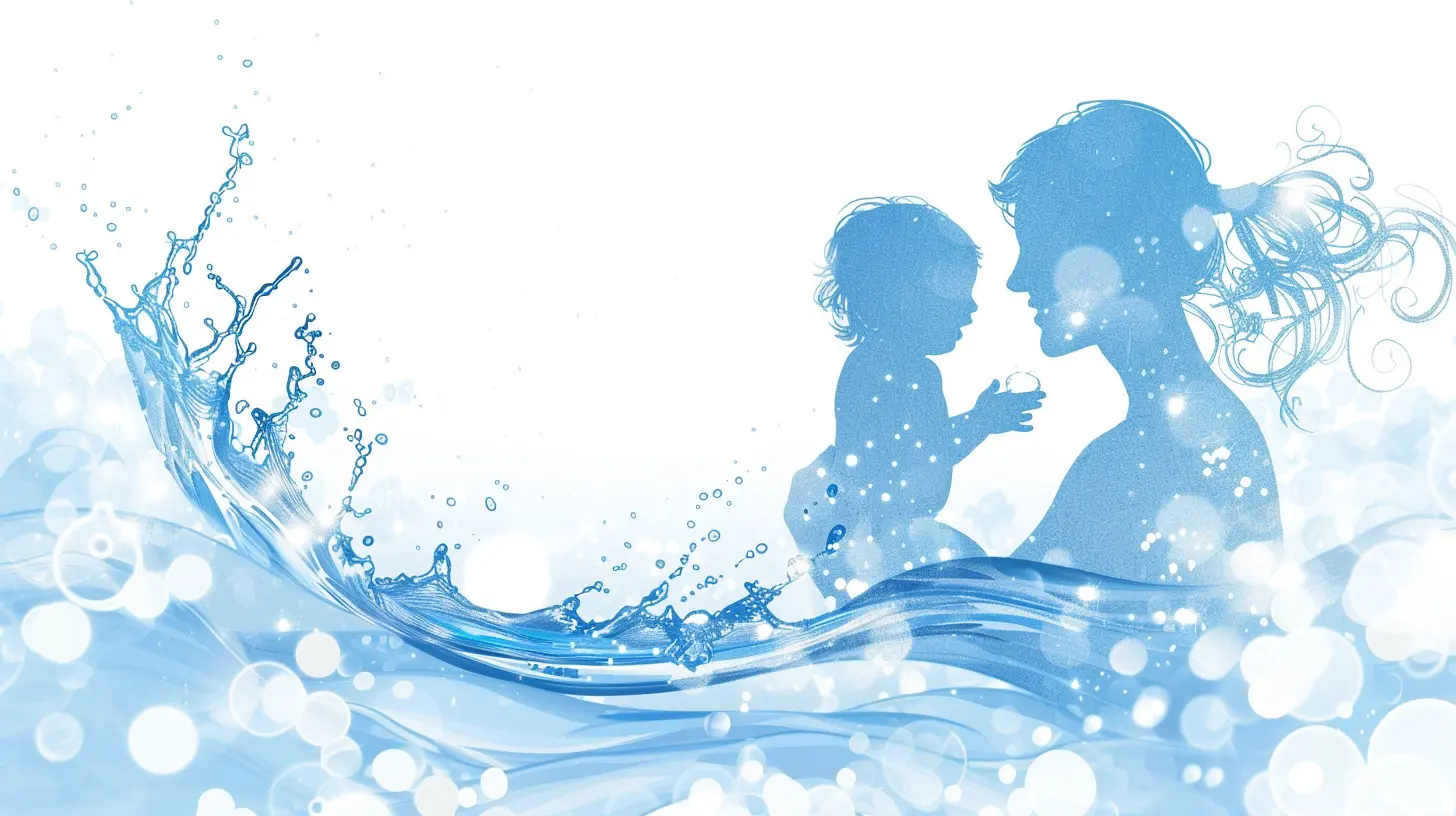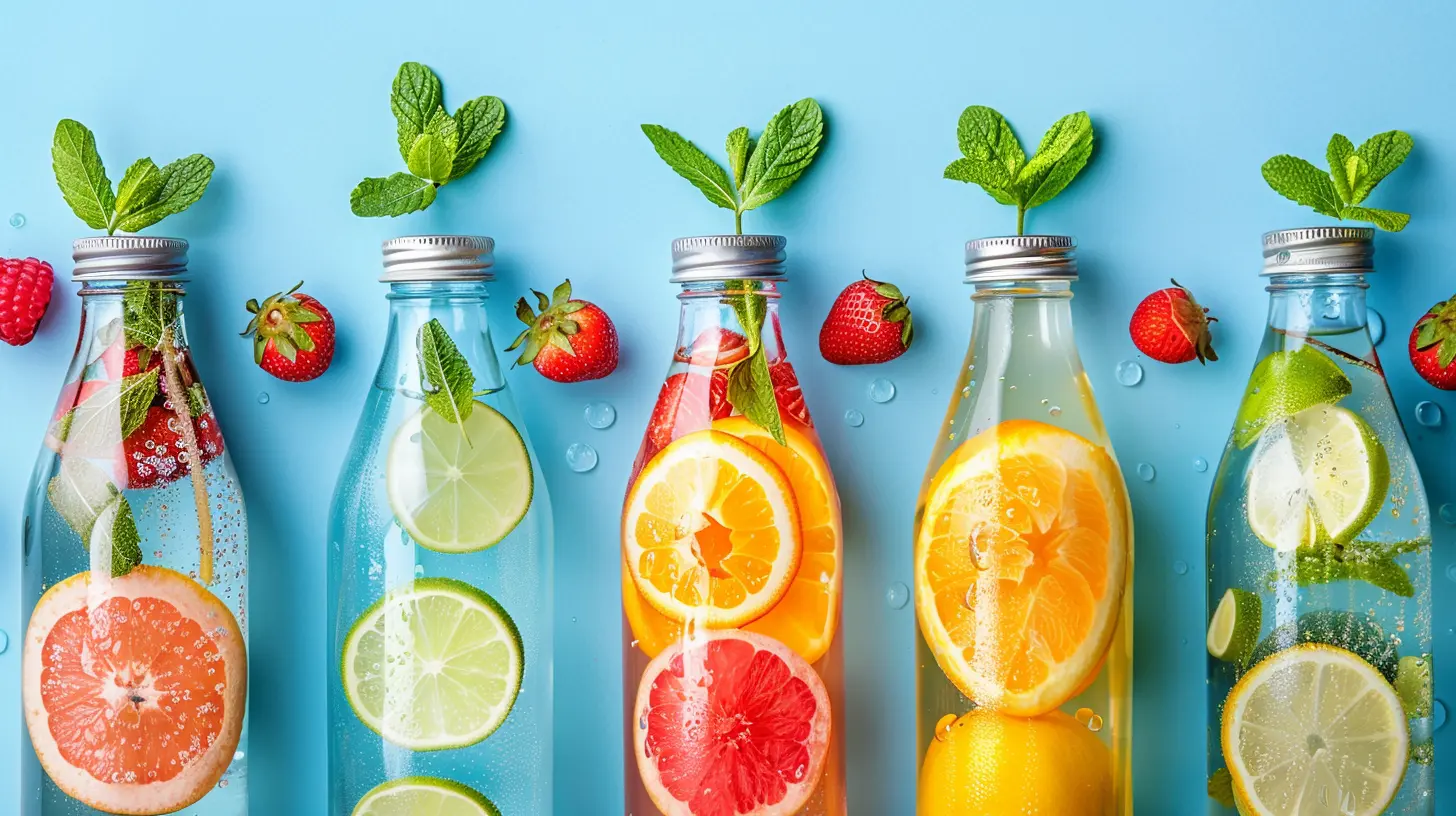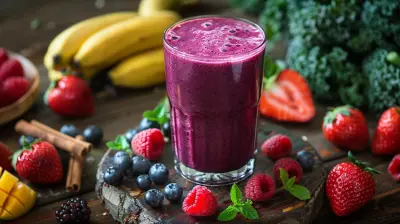The Connection Between Postpartum Health and Hydration
12 September 2025
Bringing a baby into the world is a beautiful, transformative experience—but let’s be real—it’s also exhausting, messy, and emotionally overwhelming. While your body is doing its best to bounce back, there’s one secret weapon that can seriously support your postpartum recovery: hydration.
Sounds too simple, right? Just drink more water? But trust me, it’s a game-changer.
In this article, we're diving deep into why hydration is so much more than just a “nice-to-have” during those tender weeks after childbirth. We're going beyond the basics and uncovering the real connection between postpartum health and hydration—how water impacts your hormones, mood, milk production, energy, and even your sleep. Yup, it affects all of that!
Why Hydration Matters More Than Ever Postpartum
Let’s start with the obvious question: why is hydration such a big deal after giving birth?During pregnancy, your body worked overtime—more blood volume, more amniotic fluid, more swelling. After delivery, your body shifts gears and starts eliminating all that extra fluid. You’ll sweat (a lot more, especially at night), pee frequently, and possibly even cry more (hello, hormones!). All of that leads to a faster loss of water than usual.
So imagine your body as a sponge that’s been squeezed. You need to rehydrate it to bounce back. Skimping on fluids during this crucial period slows down recovery and worsens those already annoying postpartum symptoms.
What Happens to Your Body When You're Dehydrated Post-Birth
You might be surprised how many postpartum symptoms can be traced back to dehydration. Let’s break some of them down:1. Breastfeeding Becomes Tougher
Breast milk is about 90% water. So, if you're not drinking enough, your milk supply might take a hit. Many new moms notice their supply drop when they forget to hydrate. And no, you don’t need to drown yourself in gallons of water, but consistent sipping throughout the day supports healthy milk production.2. You Feel Extra Tired (Even More Than Normal)
Okay, you’re already surviving on 2 hours of sleep and caffeine—but did you know dehydration can make you feel even more sluggish? When you’re low on fluids, your blood pressure drops, reducing oxygen flow to your brain and muscles. That "walking zombie" feeling isn’t just from your newborn’s 3 AM party habits.3. Cramps, Headaches, and Dizziness Creep In
Ever stood up quickly and felt dizzy after giving birth? It’s not just the exhaustion—it could be dehydration at work. Headaches, muscle cramps, and that lightheaded feeling are your body’s way of yelling, “Hey, I need water!”4. Constipation and Hemorrhoids Get Worse
Your digestive system can be sluggish post-birth (thanks, hormones and pain meds), and if you had a vaginal delivery, going to the bathroom might feel like a horror film. Not drinking enough fluids makes stool harder, making constipation—and those dreaded hemorrhoids—even worse.
How Much Water Should You Really Be Drinking?
So here’s the million-dollar question: how much water is “enough”?There’s no one-size-fits-all answer, but a good general rule? Aim for 8-12 cups of fluid per day—but if you’re breastfeeding, you’ll likely need more. Trust your thirst as a guide, but don’t wait until your mouth feels like the Sahara Desert.
A helpful tip: try drinking a full glass of water every time you feed your baby. This ensures you’re constantly replenishing what your body is using.
Signs You Might Be Dehydrated
Let’s run through a quick checklist. If you’re experiencing any of these, your body might be crying out for H2O:- Dry lips or mouth
- Dark yellow urine
- Fatigue or brain fog
- Headaches
- Constipation
- Less milk output
Sometimes dehydration sneaks up subtly, so keeping tabs on your daily water intake is a smart move—especially in the haze of new motherhood.
Hydration and Hormones: The Overlooked Connection
Here’s where things get really interesting.After childbirth, your hormones go on a rollercoaster ride. Estrogen and progesterone drop sharply, and oxytocin and prolactin rise, particularly if you’re breastfeeding. Hydration plays a sneaky but crucial role in balancing these shifts.
When you’re dehydrated, stress hormones like cortisol can skyrocket, which may amplify mood swings or even contribute to postpartum depression and anxiety. On the flip side, staying well-hydrated helps regulate these hormones, promoting emotional stability and better mental clarity.
Think of water as the oil keeping your hormonal machine well-lubricated.
Emotional and Mental Health: Water for the Win
Let’s talk baby blues. Feeling down or overwhelmed in the postpartum period is completely normal. But dehydration can intensify emotions—leading to irritability, confusion, or even panic.Your brain is about 75% water. When it’s deprived, it can’t function optimally. Staying hydrated may not be a magic cure for postpartum depression, but it’s a foundational step toward stabilizing your mental health.
Even mild dehydration affects your mood—so if you’re feeling extra snappy or foggy, grab a bottle of water before grabbing the chocolate (no judgment if you do both).
Dehydration and Sleep: Another Sneaky Connection
Sleep deprivation is practically a rite of passage for new parents. But did you know dehydration can mess with the little sleep you are getting?Lack of fluids can affect melatonin production (the hormone that helps you sleep), increase your heart rate, and cause night-time leg cramps—leading to restless, broken sleep. And you already have a tiny human doing enough of that on their own.
Moral of the story? Staying hydrated might help you make the most of the few precious hours of sleep you can grab.
Smart Ways to Stay Hydrated Without Feeling Like a Chug Machine
Let’s be honest—it’s hard to remember to drink water when you're soothing a fussy baby, folding laundry, and trying to remember the last time you showered.Here are some realistic, mom-friendly hydration hacks:
1. Keep Water Within Reach
Have a water bottle stationed in every room where you spend time—nursery, living room, your bedroom. That way, it’s always within arm’s reach.2. Try Infused Water
If plain water bores you to tears, try adding slices of lemon, cucumber, mint, or berries. It feels fancy and makes hydration a little more exciting.3. Eat Your Water
Foods like watermelon, oranges, cucumbers, and strawberries are water-rich and refreshing. Snacking on them adds hydration without any extra effort.4. Set Tiny Goals
Instead of stressing over 12 cups, set micro-goals: a glass when you wake up, a glass after every feed, one with each meal, one before bed. Small sips add up fast.What About Other Fluids? Do They Count?
Absolutely! Herbal teas, milk, bone broth, and even soups contribute to your hydration. Just be cautious with too much caffeine—it can be dehydrating, not to mention it may mess with baby's sleep if you're nursing.Sports drinks or electrolyte waters can also help, especially if you’re sweating more or feeling wiped. Just check the sugar content—not all drinks marketed as “healthy” are your friend.
A Quick Note About Postpartum Recovery Drinks
You’ve probably seen hydration powders, postpartum electrolyte mixes, and coconut water being hyped as miracle drinks. While many of these are helpful, don’t get caught up in the marketing flurry.The key is balance. If it helps you drink more water, that’s a win—but you don’t need fancy powders to heal your body. Good ol’ H2O still reigns supreme.
Final Thoughts: Hydration Is Self-Care (Really!)
Let’s face it—postpartum life is chaotic. Some days you’ll feel like a superhero, and other days, you’ll feel like you’re barely holding it together.But taking care of yourself isn’t selfish—it’s essential. Drinking water might seem like a tiny thing, but it's one of the most powerful tools for physical healing, emotional balance, and breastfeeding success.
So grab that water bottle right now (yes, now!) and take a long sip. Your body—and your baby—will thank you.
TL;DR: Quick Takeaway
Staying hydrated after childbirth is a small act with big rewards. It helps with:- Hormone balance
- Breast milk production
- Energy and mood
- Digestion and healing
- Sleep quality
Aim for regular, consistent fluids, especially when breastfeeding. Make hydration easy, fun, and part of your daily rhythm.
Motherhood is tough—but water? That’s your quiet little sidekick, always ready to support you.
all images in this post were generated using AI tools
Category:
Postpartum HealthAuthor:

Madeline Howard
Discussion
rate this article
1 comments
Caitlin Benson
In the tender days that follow birth, Hydration weaves a silent mirth. Nourish your soul, let waters flow, A mother's strength, in hydration, will grow.
September 19, 2025 at 3:53 PM

Madeline Howard
Thank you for your poetic insight! It beautifully captures the vital role of hydration in nurturing both mother and baby during the postpartum period.


